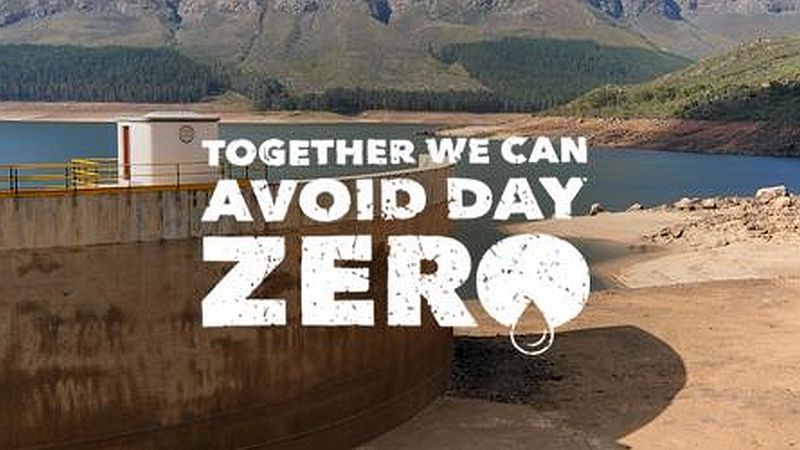With stablecoins gaining traction and regulation improving, African merchants may be nearing a crypto tipping point. Here’s why 2026 could mark a shift from hesitation to adoption.
Everything you need to know about Cape Town’s Day Zero plans

As Cape Town’s water crisis deepens, and Day Zero draws nearer, a lot of questionable information is currently circulating on the internet.
But the City of Cape Town is finally getting its act together — at least in terms of providing regular updates on the progress of its disaster plan, what Day Zero will mean for all Capetonians, and how its water collection points will work.
Although it’s still calling on users to reduce consumption, in addition to new social media campaigns including #DefeatDayZero, there’s no doubt that Mayor Patricia de Lille’s words of “We have reached the point of no return” still resonates.
And we’re probably all freaking out. A little.
To ease those worries, here’s everything we know so far, based on communications from the City of Cape Town and other official sources (as of 5 March 2018).
The City of Cape Town now has a “Disaster Operations Centre”. What is it?
It’s a fancy name for the City of Cape Town’s team that will be executing the “City’s Water Disaster Plan, which will take effect in the event of Day Zero”.
Richard Bosman, the City’s executive director of safety and security, will head up the DOC.
The DOC will be operational as of Monday 29 January 2018.
In the event of Day Zero, who will continue to receive water?
“Strategic commercial areas, high-density areas with significant risk of increased burden of disease, and critical services, such as hospitals, will continue to receive drinking water through normal channels,” the City announced in its Day Zero Disaster Plan FAQ [pdf].
The City has not yet confirmed which areas will be exempt from the Day Zero switch off.
“Densely populated informal settlements” will also not have their water switched off.
What’s the latest regarding the “water collection points”?
The DOC will manage the points, including security, access and overall efficiency. This requires the City to “troubleshoot” all 200 proposed points across the city.
According to the City of Cape Town, the number of water collection points have not been finalised, but around 200 should be available across the city. 149 sites have been confirmed to date.
The sites will include areas for pedestrians and vehicle collections.
Each point will have between 50 and 200 taps, while some collection points may allow for “drive through water collection”.
The City assumes that each person will spend five minutes at each point.
Operating times have also not been finalised as yet, but these will be adjusted accordingly for each collection point.
You will need to provide your own containers.
What about those who cannot make it to these collection points daily?
“Water tankers will be used to deliver water to vulnerable groups such as old age homes and care facilities,” the City announced in a release.
The City is also reportedly in talks with bottled water suppliers to ramp up production for those who’d rather purchase water.
For those who cannot collect water themselves, others can collect on your behalf.
“It is important that persons are permitted to collect water for others as not all members of society will be able to collect water for themselves, for example young children, the elderly and disabled,” the City explained.
Residents can also go to “any [water collection] point of their choice”.
Do you need to provide identification information to access water at these water points?
No.
“We want to stress that no one will be turned away from the Water Collection Points. All persons living in Cape Town will be entitled to collect water at these points. No one will be required to provide any identification to collect their daily allocation of water,” the City clarified.
Users of the water collection site will however be prevented from “collecting far above their daily water allocation”.
“Officials will be onsite to monitor potential abuse, and residents are also encouraged to report any abuse they witness.”
The City may however allow one user to collect up to 100-litres for four people, making it easier for those with families to collect water.
What about security?
South African Police Services, the South African National Defence Force and Metro police will be deployed at various points across the city.
Sites will also be ranked by security risk, with officials distributed both inside and outside collection points accordingly.
What about potential health risks and the sewerage system?
“Outbreak response teams” have been established, who will monitor trends and various cases of diseases.
The City has also asked citizens that have collected grey water, rain water and borehole water to prioritise it for flushing to “help keep the sewage system functioning”.
It also recommended that Capetonians use sea water, spring water and water from rivers and wetlands to flush.
Can I still use Cape Town’s springs?
Yes.
The City won’t bar people from accessing water from the natural springs around the peninsula.
On 31 January 2018, mayco member for safety and security JP Smith announced that the City will be “improving the management” of the Springs Way water point in Newlands.
City enforcement will be on duty, traffic services will manage congestion and the site itself will be open between 7am and 10pm daily.
There’s one caveat though:
In the interest of speeding up the queues and allowing everybody fair access to the spring water, each person will be requested to only fill containers of up to 25 litres at a time to ensure that no one person holds up the queue — people are welcome to re-join the queue to fill more containers, but it is becoming essential that all those visiting the site be given a fair chance to collect water without some delaying the queues due to filling up hundreds of litres at a time.
Smith also stated that the current spring water accessible at the Spring Way point will be diverted to the Newlands swimming pool — largely due to congestion.
“This location is far easier to access and has ample parking, and will allow for easier management as well as faster and more convenient access for all people collecting water,” he concluded.
When is Day Zero?
As of 5 March 2018, Day Zero is currently penned for 15 July 2018.
Previous dates, and when they were declared by the City of Cape Town:
- 9 July 2018 at the end of February
- 6 June 2018 in mid-February
- 11 May 2018 at the beginning of February
- 16 April 2018 in early January
How much water is left in Cape Town’s dams?
Memeburn publishes a weekly dam report, looking at the City of Cape Town’s figures.
As of 5 March 2018, the total dam storage is 23.6% — just over 10% of surface storage remains until Day Zero.
Read the latest report here.
How can we avoid Day Zero?
Adhering to Level 6B water restrictions, saving as much water as possible, is what citizens can do to ensure Day Zero remains a worst case scenario.
These restrictions, which come into effect from 1 February 2018, will include:
- A daily limit of 50 litres or less per person regardless of their location or daily activities
- Borehole usage for irrigation purposes will be limited to a one hour period only on Tuesdays and Saturdays before 9am and after 6pm
- Borehole and wellpoint water now require metering and respective records
As for the rest of the Western Cape:
- the Drakenstein and Cape Agulhas municipalities are under Level 6 water restrictions.
- Saldanha, Stellenbosch and the Swartland municipalities are covered by Level 5 restrictions.
- The Beaufort West municipality is currently employing Level 4B restrictions.
- The Witzenberg Municipality — which encompasses the towns of Ceres, Tulbagh, Wolseley, Op-die-Berg and Prince Alfred Hamlet — is under Level 4 water restrictions.
How can I contact the City of Cape Town’s Disaster Operations Centre?
Great question.
This email address can be used to report overzealous water users, and query pressure reduction measures.
This email can be used for those looking for water deliveries. While this particular address can be used by good Samaritans able to “assist with donations of containers of water”.
What other resources should I bookmark?
Memeburn’s historical coverage of the Cape Town water crisis can be accessed here.
However, we recommend that you pocket these particular articles:
- Everything you need to know about Cape Town’s water rationing
- Calculate your daily water usage here
- How many days of water does Cape Town have left?
- 3 apps to download before #DayZero strikes
- Cape Town’s ‘green’ map reveals water usage per household
- Level 6B water restrictions incoming
- How to volunteer or donate to Cape Town’s water crisis online
- In graphs: Cape Town’s rainfall, dam levels and consumption: January 2018
And read this one if you enjoy a good horror movie:
Note: This article will be updated regularly to reflect changes or updates made by the City of Cape Town, national government, or officials managing the water crisis.


